How does the sports development volunteer program contribute to the UNSDG?
Playing sports during the preschool and primary years encourages a child not only to follow an active lifestyle throughout their lives, but also teaches valuable social skills that will assist them in their future careers.
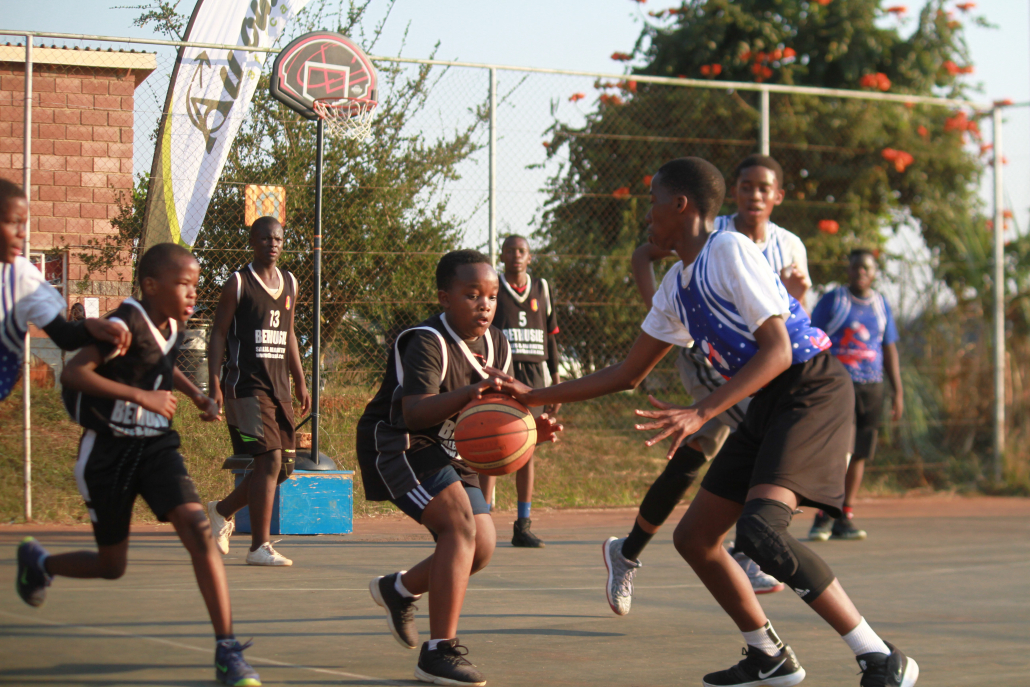
Under 15 boys Basketball tournament pre-Covid 19.
Our Sports Development Project in Eswatini aims to improve the well-being of disadvantaged children and youth within the semi-rural Swazi communities, through sports, play and education. The aim is to engage these children in activities that stimulate and focus them and keep them fit and healthy, while at the same time building their confidence through physical activity.
All our social projects are guided by the SDGs and this include the sports development program.
The contributions of our sports development program to the SDGs is outlined in this overview below:
Goal 1. End poverty
With the unemployment rate at over 40% in the Kingdom of Eswatini jobs are hard to come by especially for the youth. Our sports development program acts as a platform to create some employment opportunities and lift some Emaswati out of poverty leading to larger economic participation in the country, this is both through direct employment on the project and through empowering kids with the social and life skills necessary for a self-reliant and sustainable livelihood. Lastly, it helps immensely in raising awareness and facilitating the mobilization of needed resources to alleviate poverty through partnerships with local and international bodies.
Goal 3. Good Health and Wellbeing
The Kingdom of Eswatini has the world’s highest HIV/AIDS prevalence rates, with approximately 31% of the population being infected. In 2010 it was estimated that there were close to 200,000 orphaned children in the Kingdom due to HIV/AIDS. In most households, children go through some hardships which disturb their mental health and engaging them in sports helps them ward off depression. Our sports development program helps in reducing the risk of contracting diseases by strengthening cardiovascular and physical health and can contribute to tackling and preventing emotional and psychological stress. We run weekly sports days for pre-school aged vulnerable children at community Neighborhood Care Points (NCPs) in Eswatini. With activities including playing ball games, relay running races, sack races, dance games, Hoola hoop games and more, these activities have a positive impact on the children and healthy adolescent development and well-being.
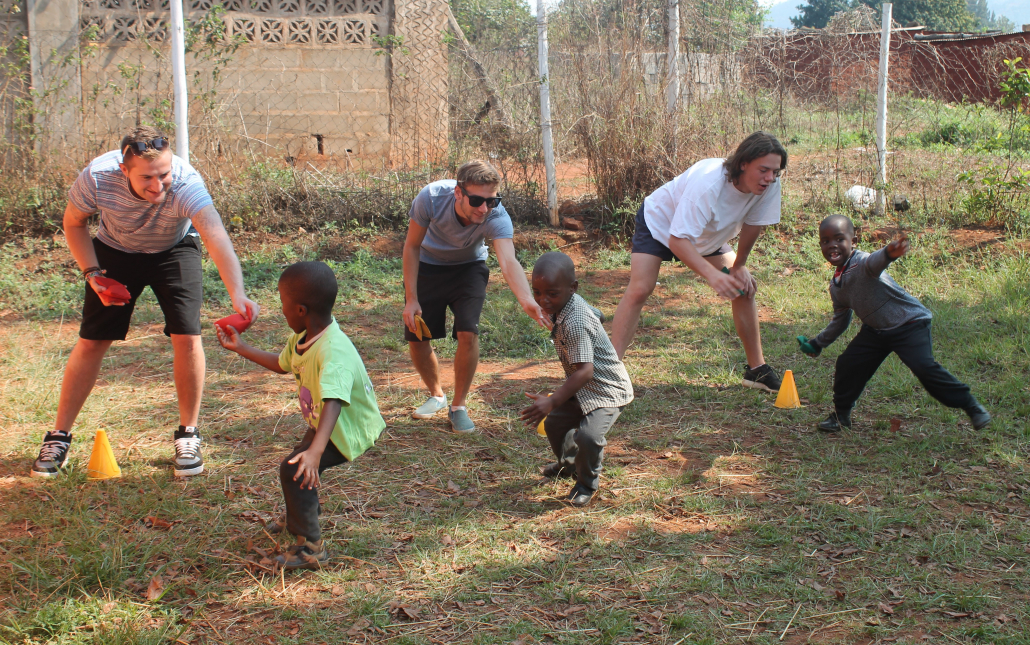
Neighbourhood Care Points (NCPs) weekly sports days pre-Covid 19.
Our weekly football league for Under 13 and Under 15 boys has been a viable platform for health and emotional wellbeing, particularly to disseminate information on sexual and reproductive health, alcohol and substance abuse, as well as communicable diseases such as HIV/AIDS.
Goal 4. Quality education
Our weekly sports days at the community Neighborhood Care Points have been very helpful in improving learning outcomes by fostering academic performance and achievement, leadership abilities, educational opportunities and life skills to be used beyond school including the workplace. By taking part in sports and physical activities alongside school, students are exposed to the sport’s key values, including teamwork, fair play, respect for the rules and others, cooperation, discipline and tolerance. The children and young people at our neighbourhood care points benefit tremendously from the sports project because the skills we equipped them with are essential for future participation in group activities and professional life and can stimulate social cohesion within communities and societies. We also organize afternoon homework clubs to assist struggling young teenagers with their homework and grades to improve education for those that need it.
Goal 5. Gender equality
We host a weekly football league for Under 13 and 15 aged boys, a football knockout tournaments for Under 15 girls and a Basketball tournament for girls and boys. These have been a powerful platform for advocacy and raising awareness for gender equality.
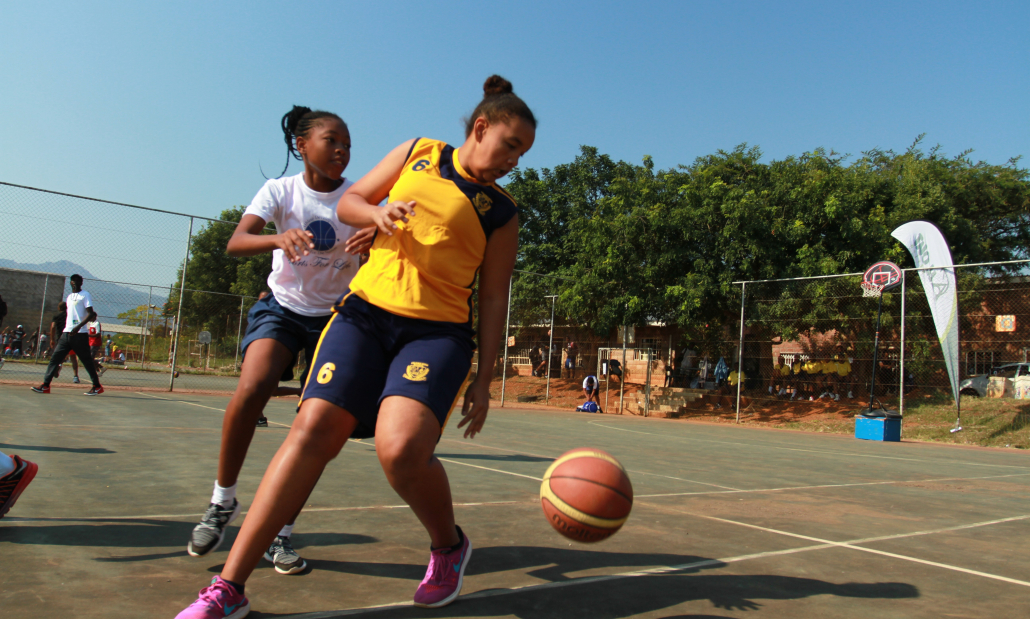
Under 15 Girls Basketball tournament pre-Covid 19.
Goal 10. Reduced inequalities
We invest in the education of vulnerable children and support women and girls to participate in sports at the junior level and we develop policies to reduce inequality at various levels. Our volunteer programs are aimed at cultural immersion to improve understanding and tolerance and create opportunities for those stuck in a poverty trap.
Goal 17. Partnership for the goals
Through our sports project, we have been able to build and strengthen the relationship with our local (Hhohho Regional Football Association, schools, communities, the government of Eswatini) and international partners (BOOST, Volunteers) who are continuously helping us achieve the goals mentioned above.
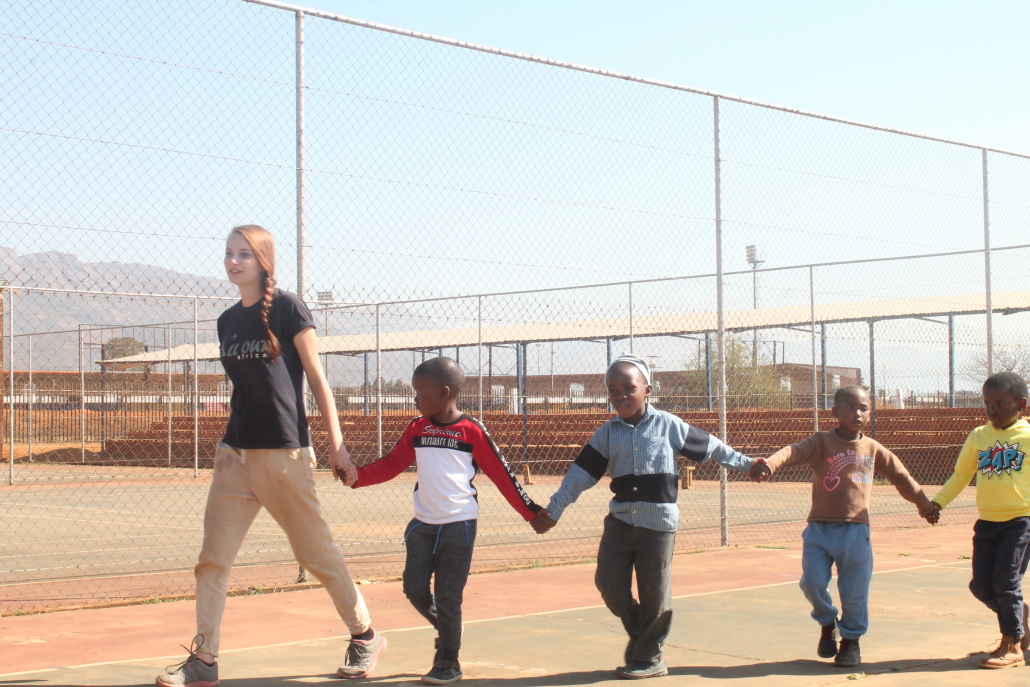
NCP children with a sports volunteer pre-Covid 19.
The 17 SDGs were adopted by the United Nations in 2015 as a universal call to action to end poverty, protect the planet and ensure that by 2030 all people enjoy peace and prosperity. In the next few months, we will be sharing how our volunteering programs and the work we are doing, helps to support each of these 17 goals.

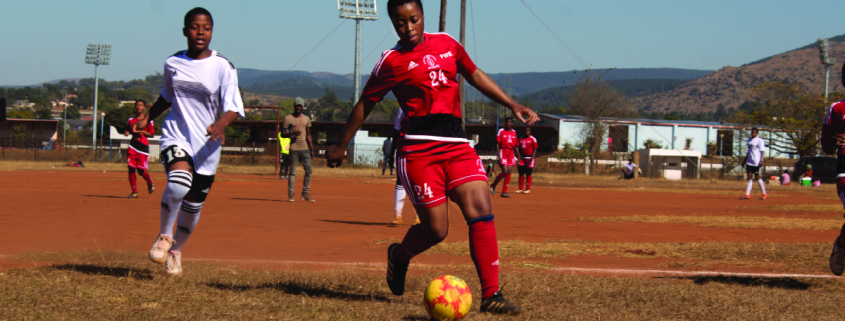
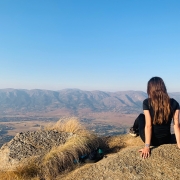
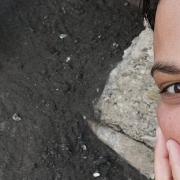
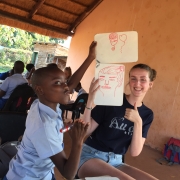
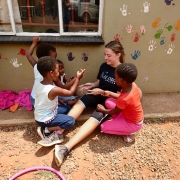
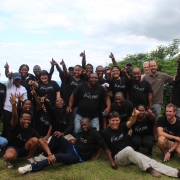
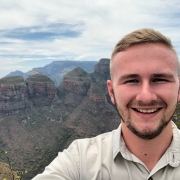
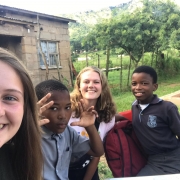
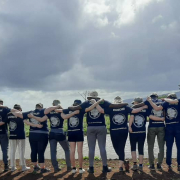 Kim
Kim 
 Kim
Kim
Leave a Reply
Want to join the discussion?Feel free to contribute!